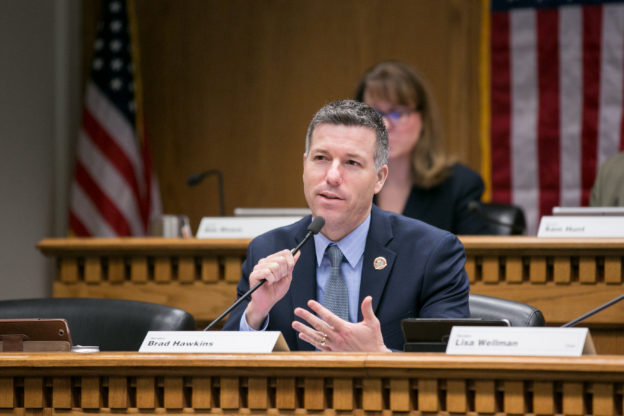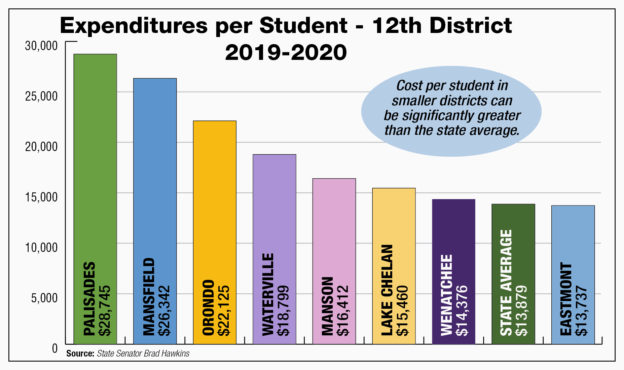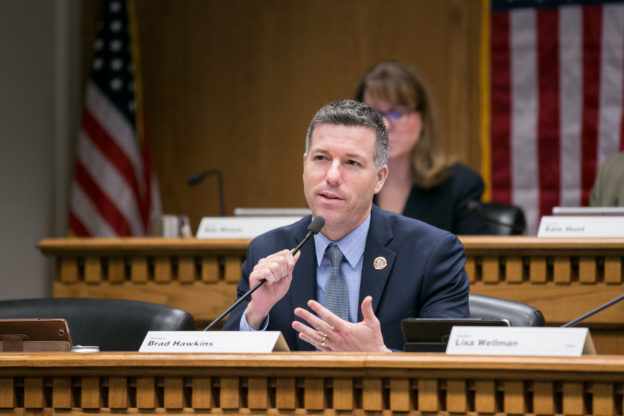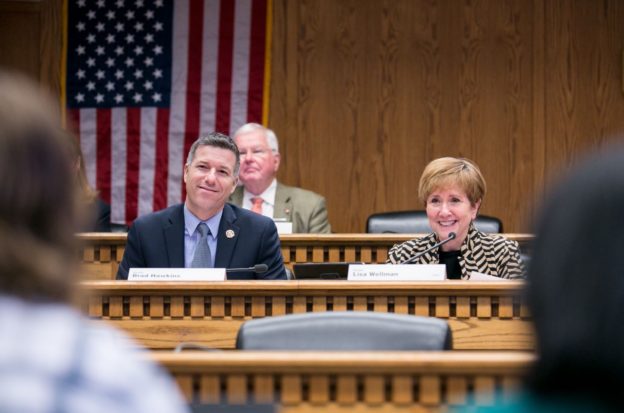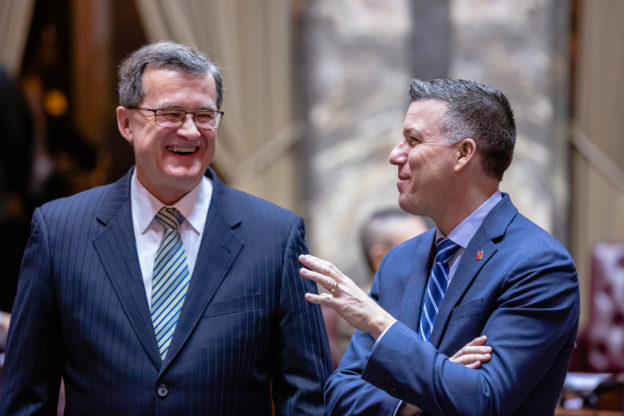Senate Bill 5487 now heads to the House Education Committee for consideration.
Senate Bill 5487, a bipartisan bill introduced by 12th District Sen. Brad Hawkins, has successfully cleared another hurdle in Olympia as it was approved today by the state Senate by a vote of 40 to 9.
“I’m excited my bill has advanced this far in a short session,” said Hawkins, the ranking Republican on the Senate’s Early Learning and K-12 Education Committee, and a former board member at the North Central Educational Service District and Eastmont School District. “It has provided my colleagues an opportunity to have a productive dialog on this idea, which is what I was hoping for. I’m grateful that they feel the idea has merit.”
Hawkins’ bill takes a creative approach to elevating the issue of small school district consolidation by offering a temporary boost in facility funding if school districts voluntarily choose to consolidate together, achieving savings for taxpayers and expanding opportunities for students.
Hawkins stated that the average cost during the 2019-2020 school year in state and local dollars was $13,879 per student. Small school districts in Hawkins’ legislative district, for example, spent as much as $22,125 (Orondo), $26,342 (Mansfield), and $28,745 (Palisades) that year per student.
Hawkins said that smaller districts tend to spend much more per student due largely to front-office administrative functions that he believes could be shared among multiple districts. He believes it would be more efficient for taxpayers – and expand opportunities for students – if some districts partnered with their nearby neighbors.
“I’ve been encouraging my legislative colleagues to think differently about how we deliver educational services,” said Hawkins. “If we were to reimagine school districts today based on what we spend on education, we wouldn’t draw up 295 different school districts in our state, especially when many of the small school districts are spending much more than the state average per student. It doesn’t make sense for the taxpayers.
“Legislators are in the ‘carrots-and-sticks’ business, and I’ve always preferred the carrots,” added Hawkins. “We can’t expect things to change unless we come up with creative options. I think a ‘voluntary, incentives-based’ consolidation bill has largely avoided the controversies of past proposals and has prompted some conversations.”
Senate Bill 5487 previously was approved by the Senate’s Early Learning and K-12 Education Committee, Ways and Means Committee, and Rules Committee this session.
The bill now advances to the House Education Committee, a committee Hawkins served on when he was a 12th District state representative.











